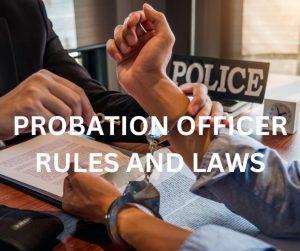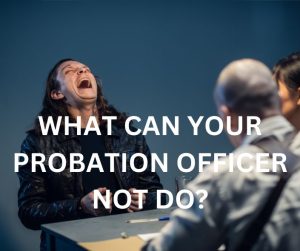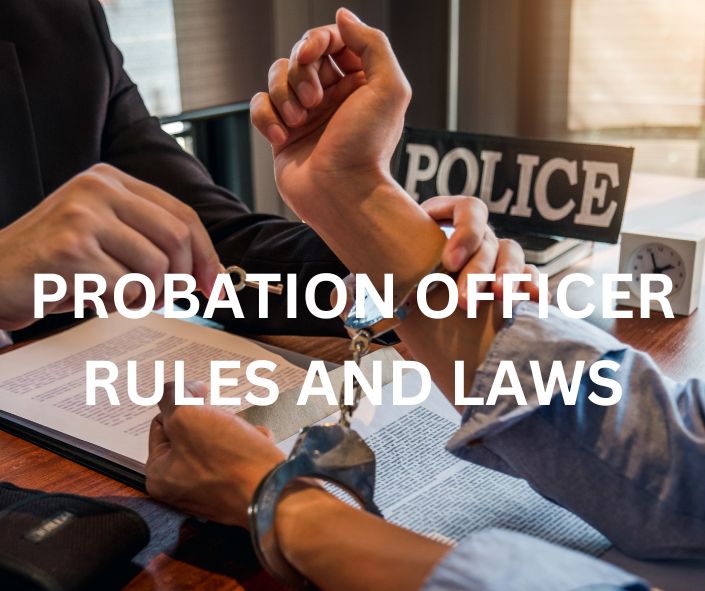When discussing drug and weapons cases in Pennsylvania, a recurring topic is the rights of individuals on probation or parole concerning home searches. The U.S. and Pennsylvania Constitutions generally mandate that law enforcement obtain a search warrant before searching a private residence. However, exceptions exist, especially for those on probation or parole.
Home Visits by Probation Officers
Probation or parole officers can conduct limited home visits without a warrant as part of the probation or parole conditions. During these visits:
- The probationer is legally obligated to give the officer a tour of the residence.
- If the officer observes incriminating items in plain sight, they can be seized and used against the probationer. This could include drugs, firearms, or other illegal items.
Philadelphia Bail Reduction Attorneys
Pennsylvania Law – Probation And Parole
In Pennsylvania, the rules and regulations governing probation and parole, including home visits by probation officers, are primarily outlined in the Pennsylvania Code under Title 234 – Rules of Criminal Procedure. Specifically, Chapter 7 of this title deals with probation and parole procedures.
However, the specific details and conditions of probation, including home visits, are often determined by the sentencing court and are included in the probation agreement or order. This means that the exact conditions can vary from one case to another.
For the most accurate and detailed information regarding the statutes governing home visits by probation officers in Pennsylvania, it would be best to consult the Pennsylvania Code directly or seek guidance from a legal professional familiar with Pennsylvania’s criminal justice system.
The Reasonable Suspicion Standard
 Probation officers can conduct a comprehensive search of a probationer’s residence if they have “reasonable suspicion” of contraband presence. This standard is less stringent than “probable cause.” Instead of obtaining a warrant, the officer only needs supervisor authorization. However, probation officers cannot act as proxies for police or other law enforcement agencies wanting to use probation status to bypass the warrant requirement.
Probation officers can conduct a comprehensive search of a probationer’s residence if they have “reasonable suspicion” of contraband presence. This standard is less stringent than “probable cause.” Instead of obtaining a warrant, the officer only needs supervisor authorization. However, probation officers cannot act as proxies for police or other law enforcement agencies wanting to use probation status to bypass the warrant requirement.
For these searches:
- The entire house can typically be searched, not just the probationer’s room.
- The house owner often signs a release allowing the probationer or parolee to reside there, which can influence the search’s scope.
Terry v. Ohio & Reasonable Suspicion
The controlling case law on the reasonable suspicion standard is primarily derived from decisions of the United States Supreme Court. One of the most significant cases in this area is Terry v. Ohio, 392 U.S. 1 (1968). In this landmark decision, the Supreme Court held that a police officer may stop and frisk a person without a warrant if the officer has a reasonable suspicion that the person may be involved in criminal activity. The Court emphasized that the officer’s suspicion must be based on “specific and articulable facts” rather than a mere hunch.
Following Terry, several other Supreme Court decisions have further clarified and expanded upon the reasonable suspicion standard:
- United States v. Sokolow, 490 U.S. 1 (1989): The Court held that the totality of the circumstances must be considered when determining whether there is reasonable suspicion to justify a stop.
- Alabama v. White, 496 U.S. 325 (1990): The Court ruled that an anonymous tip can provide the basis for reasonable suspicion if the tip is sufficiently reliable.
- Illinois v. Wardlow, 528 U.S. 119 (2000): The Court found that unprovoked flight in a high-crime area can contribute to a finding of reasonable suspicion.
- Navarette v. California, 572 U.S. 393 (2014): The Court held that an anonymous 911 call reporting erratic driving could provide reasonable suspicion for a traffic stop if the call is sufficiently reliable.
These cases, among others, form the foundation of the reasonable suspicion standard in the United States. However, it’s important to note that the interpretation and application of this standard can vary based on jurisdiction and specific factual scenarios. If you’re seeking detailed legal analysis or advice on a specific situation, it’s advisable to consult with a legal professional or review more comprehensive legal resources.
Recent Case Law: Commonwealth v. Parker
The Pennsylvania Superior Court recently addressed these exceptions in Commonwealth v. Parker, 2016 Pa Super 280 (Pa. Super. Ct. 2016). The court upheld probation officers’ rights to search a probationer’s home without prior allegations against the probationer. The case highlighted the balance between a probationer’s rights and the state’s interest in ensuring probation terms are followed.
Police Searches vs. Probation Searches
While probation officers have certain liberties to search without a warrant, the police do not have the same freedoms concerning probationers. The police must still obtain a search warrant unless evidence is first uncovered by probation officers either in plain view or based on reasonable suspicion. This distinction is crucial to prevent misuse of probation status to evade the warrant requirement, known as the “stalking horse doctrine.”
Protecting Your Rights
Different standards apply to probationers, but law enforcement must still adhere to legal protocols. If facing charges due to items found in your residence, vehicle, or on your person, it’s imperative to consult a criminal defense attorney promptly. There may be defenses available, from challenging an illegal search to disputing evidence possession. The Philadelphia criminal defense lawyers of Goldstein Mehta LLC have successfully contested significant drug and gun charges due to unlawful parole searches.
What Can A Probation Officer NOT Do?
Probation officers play a crucial role in the criminal justice system, overseeing individuals who have been placed on probation rather than serving time in prison. While they have significant authority to ensure that probationers comply with the terms of their probation, there are limits to their powers. Here are some things that a probation officer generally cannot do:
 Violate Constitutional Rights: Probation officers must respect the constitutional rights of probationers. For instance, while they may have more leeway to conduct searches than regular law enforcement officers, they still cannot engage in unreasonable searches and seizures.
Violate Constitutional Rights: Probation officers must respect the constitutional rights of probationers. For instance, while they may have more leeway to conduct searches than regular law enforcement officers, they still cannot engage in unreasonable searches and seizures.- Use Excessive Force: Like any other government official, probation officers cannot use excessive or unnecessary force against probationers.
- Make Arrests Outside Their Jurisdiction: Probation officers typically have the authority to arrest probationers for violations, but this authority may be limited to their specific jurisdiction.
- Impose Additional Sentences: While they can recommend changes to the terms of probation, probation officers cannot unilaterally impose additional criminal sentences or change the terms of a probationer’s sentence.
- Provide Legal Advice: Probation officers are not attorneys and cannot provide legal advice to probationers. They can, however, provide information about the terms and conditions of probation.
- Act as a Therapist or Counselor: While they might refer probationers to therapy or counseling, they are not licensed therapists or counselors themselves.
- Make Decisions on Parole: Parole and probation are two different aspects of the criminal justice system. Probation officers do not have authority over parole decisions.
- Act Arbitrarily or Capriciously: Decisions made by probation officers regarding potential violations or recommendations for changes in probation terms should be based on facts and the law, not on personal feelings or biases.
- Discriminate: Probation officers cannot discriminate against probationers based on race, gender, religion, sexual orientation, or any other protected characteristic.
- Violate Confidentiality: Probation officers are privy to personal and sensitive information about probationers. They are generally required to keep this information confidential, except in situations where disclosure is necessary for the performance of their duties or required by law.
It’s important to note that the specific powers and limitations of probation officers can vary based on state laws, local regulations, and the terms of individual probation agreements. If someone believes that a probation officer has overstepped their bounds or acted inappropriately, they should consult with a legal professional or a higher authority within the probation department.
What To Expect When A Probation Officer Visits My Home?
When a probation officer visits your home, it’s typically to ensure that you are complying with the terms of your probation and to assess your living situation. Here’s what you can generally expect during such a visit:
- Identification: The probation officer will likely begin by identifying themselves and showing their credentials. They may also explain the purpose of their visit.
- Entry and Inspection: With your permission, or as allowed by the terms of your probation, the officer will enter your home. They may inspect different areas of your home to ensure there are no violations of your probation terms, such as the presence of illegal substances or firearms.
- Questions: The probation officer may ask you questions about your activities, employment, relationships, and any treatment or programs you are attending. They might also inquire about any challenges you’re facing or support you might need.
- Interaction with Others: If there are other people in the home during the visit, the probation officer might speak with them to gather additional information about your behavior and compliance.
- Documentation: The officer will likely take notes during the visit to document their observations and any potential issues. This documentation can be used in future assessments or court reports.
- Addressing Violations: If the probation officer identifies any violations of your probation terms, they will address them with you. Depending on the severity and nature of the violation, consequences can range from a verbal warning to a recommendation for more severe penalties, such as revocation of probation.
- Guidance and Support: Probation officers are not just enforcers; they also play a supportive role. They might provide guidance, recommend resources, or offer solutions to help you stay compliant with your probation terms.
- Duration: The length of the visit can vary based on the officer’s objectives and whether any issues arise. Typically, a routine visit might last anywhere from 15 minutes to an hour.
- Frequency: The frequency of home visits will depend on the terms of your probation and your risk assessment. Those deemed higher risk or with a history of violations might receive more frequent visits.
- Privacy and Respect: While the probation officer has the authority to conduct the visit and ensure compliance, they should also respect your privacy and dignity. Any searches or questions should be relevant to the terms of your probation.
It’s essential to cooperate with the probation officer during these visits. Being open, honest, and respectful can make the process smoother and help build a positive relationship with the officer, which can be beneficial in the long run. If you have concerns about the conduct of a probation officer or the terms of your probation, it’s advisable to consult with a legal professional.
Can A Probation Officer Search My House?
Yes, a probation officer can search your house, but there are specific conditions and limitations associated with such searches:
- Terms of Probation: Often, one of the conditions of probation is that the probationer agrees to allow the probation officer to conduct searches of their residence without a warrant. This condition is typically included to ensure compliance with other terms of probation, such as not possessing illegal substances or firearms.
- Reasonable Suspicion: In many jurisdictions, a probation officer can search a probationer’s home if they have a reasonable suspicion that the probationer is violating the terms of their probation. This is a lower standard than the “probable cause” required for a typical search warrant.
- Scope of Search: The scope of the search should be related to the terms of the probation. For example, if a probationer is prohibited from consuming alcohol, the probation officer might search for alcoholic beverages. However, the search should not be overly intrusive or unrelated to the probation terms.
- Third-Party Residences: If a probationer lives in a residence owned by someone else (e.g., a family member or roommate), the probation officer might still conduct a search, especially if the homeowner was aware of the probationer’s status and the potential for searches. However, the rights of third parties might limit the scope of such searches.
- Notice: While surprise searches are possible, probation officers often provide some notice before conducting a home visit or search. However, this can vary based on the jurisdiction and specific circumstances.
- Constitutional Rights: While probationers have reduced privacy rights compared to the general public, they still retain certain constitutional protections. Any search conducted without proper justification or in an overly intrusive manner might be challenged as a violation of the probationer’s Fourth Amendment rights against unreasonable searches and seizures.
- Local Laws and Policies: The specifics of when and how a probation officer can search a probationer’s home can vary based on state laws, local policies, and the terms of the individual’s probation agreement.
If you believe a probation officer has conducted an improper search or if you have questions about your rights while on probation, it’s advisable to consult with a legal professional familiar with criminal law in your jurisdiction.
List of Things Parole Officers Look For In A Home
Parole officers, much like probation officers, supervise individuals who have been released from prison before the end of their sentence. When conducting home visits, parole officers are primarily looking to ensure that the parolee is living in a stable environment and complying with the conditions of their parole. Here’s what they typically look for during a home visit:
- Living Conditions: The parole officer will assess the general living conditions to ensure they are safe and suitable for the parolee. This includes checking for adequate sleeping arrangements, cleanliness, and overall living standards.
- Compliance with Parole Conditions: Depending on the specific conditions set for the parolee, the officer might check for:
- Alcohol or Drugs: If the parolee’s offense was drug-related or if they have a history of substance abuse, the officer might look for signs of drug or alcohol use.
- Weapons: Parolees are often prohibited from possessing weapons. The officer might check to ensure there are no firearms or other weapons in the home.
- Other Prohibited Items: Depending on the nature of the parolee’s offense, there might be other items they are not allowed to possess.
- Occupants of the Home: The officer will want to know who else lives in the home and their relationship to the parolee. This is to ensure that the parolee is not associating with individuals who might negatively influence them or lead them to reoffend.
- Employment and Activities: The parole officer might ask about the parolee’s employment status, daily activities, and any programs or therapy they are attending. This helps assess the parolee’s efforts to reintegrate into society and stay on a positive path.
- Signs of Criminal Activity: The officer will be on the lookout for any signs that the parolee might be involved in criminal activities, such as evidence of stolen goods, drug manufacturing, or other illegal activities.
- Communication Devices: In some cases, the parole officer might check the parolee’s phone or computer, especially if there are conditions related to their use, such as restrictions on contacting certain individuals.
- General Well-being: The parole officer will also assess the parolee’s general well-being, both mentally and physically. This includes checking on their health, mental state, and overall attitude towards parole and reintegration.
- Interaction with the Community: The officer might inquire about the parolee’s interactions with neighbors and the broader community to gauge their efforts at positive community reintegration.
It’s essential for parolees to understand the conditions of their parole and to cooperate fully with their parole officers during home visits. Non-compliance or violations can lead to serious consequences, including being returned to prison. If there are concerns or questions about the parole process or a parole officer’s conduct, it’s advisable to consult with a legal professional.
